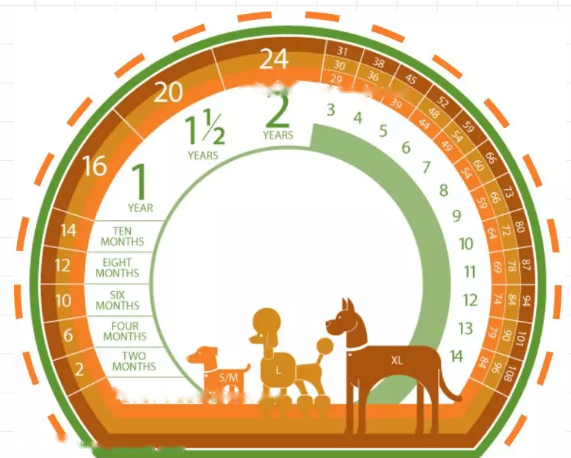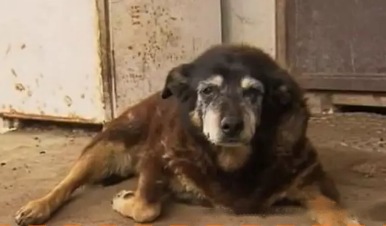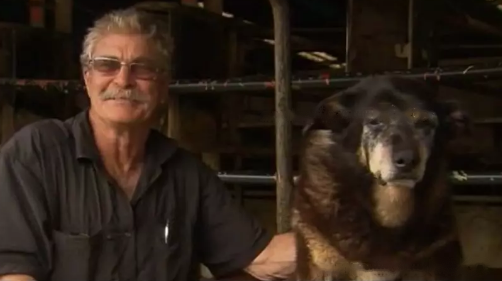Don't worry about calling me the title party, think about it, a 1-year-old dog is equivalent to a 16-year-old teenager, a dog that lived to 30 years old and won the Guinness Book of Records, how? It must be 240 years old. If nothing else, even if it only lived to be 16 or 7 years old, it would be something to be amazed at.
After all, many dogs are generally only 12-14 years old on the age comparison table. For a person like Maggie who lives to 30 years old, there is no corresponding point on the table.

But generally speaking, hybrid dogs live longer than purebred dogs, male dogs live longer than bitches, small dogs Longer than large dogs, except for the third point, Maggie.


Maggie was born in Victoria, Australia. Although he holds the record for the world's oldest dog, he is not Its birthplace - the only one in the Victoria region of Australia. Another Australian Cattle Dog named Bluey, born in 1910, was not only born on the farm like Maggie, but also the previous record holder, Maggie set his record.
One wonders if a comfortable, happy life on the farm is the secret to their longevity? If we want our dogs to accompany us longer, should we go there too?
Of course not! Just take a few minutes and read these three points carefully, and your dog may be the next record innovator!!
Due to the increase in age, the functions of all parts of the body of dogs after 6-7 years old, especially large dogs, have gradually degenerated. It is necessary to be more diligent in the physical examination, at least twice a year, and it is best to maintain a good state of communication with the doctor.
Keep a balanced diet and try to choose low-fat foods. Older dogs are more prone to obesity, which is a major problem affecting their health. It is best to eat small and frequent meals every day, because dogs become less active as they get older, and too much food means bad digestion for them.
Promise me, don't succumb to its pitiful eyes! If you can't stand it, choose healthy vegetables/fruits such as apples, pumpkins and carrots as much as possible!
Exercise is important for older dogs to manage their weight and promote healthy muscles and bones.
But given that arthritis, heart disease, and lung problems are more common in older dogs, it's fine to keep regular exercise and don't make it too tiring. Rather than taking an occasional long trip, take a proper 5-minute walk every day.
An active mental state is very important for a dog, you can play some light games with it, such as hide and seek, handshake training Wait. If your dog is still healthy, you can also take him to the lawn or park for a walk. The new environment and smell can give him a little stimulation~
Since older dogs have a weaker immune system, they are not able to fight off these parasites and bacteria. Some small parasites that usually only cause skin diseases can cause great health risks to older dogs, so regular deworming is very important.
Older dogs often have mobility problems, except for Aside from the food and water bowls, it's best to put a rug on a slippery floor to prevent it from slipping.
Like older people, older dogs are not as good at regulating their body temperature as we are, in cold or hot weather It may have difficulty breathing or keep shaking. At this time, it is necessary to seek outside help, such as wearing a sweater to keep warm or cooling with cold water.
Older dogs have no way to control their desire to defecate, so we need to increase the number of defecations by 1— 2 times. For example, if you walk every 6 hours a day, now you can try walking every 4 hours.
· Check your eyes, nose, and ears for discoloration, discharge, or other signs;
· Check the head, abdomen, and extremities for lumps or other growths, and feel the abdomen and ribs to monitor the weight. Listen to its breathing and watch for any wheezing, coughing or difficulty breathing;
If it drinks excessively or stops eating/drinking, pay attention to checking the frequency of urination and bowel movements, including their color and other Changes;
· Watch for signs of mental decline, such as excessive barking and sudden aggressive behavior, including incontinence;
· If you find it difficult to find food/toys, Or often bump into things, call it no response, and deliberately make noises to attract its attention is useless, it may be a problem with vision or hearing;
In addition to the above, once you find something wrong, don't If it is troublesome, please understand and contact the doctor, after all, the person who knows them best is you.
If your baby is very old, I hope you don't have to do some painful operations to prolong their life, such as amputation to treat bone cancer, which will only give them a little life left. Even more sad...
![[Dog Training 5] The training method of pet dog dining etiquette](/static/img/12192/12192_1.jpg)






